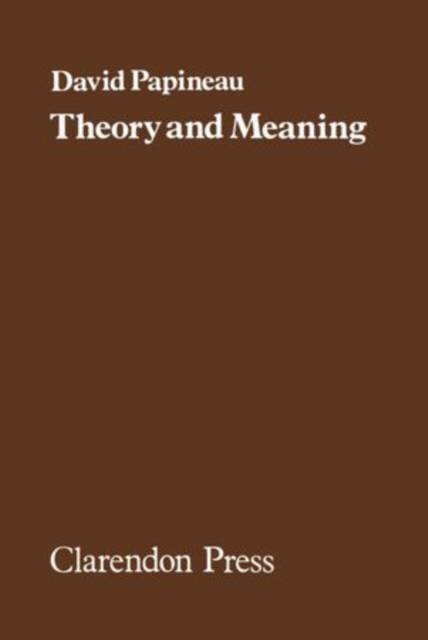
- Afhalen na 1 uur in een winkel met voorraad
- Gratis thuislevering in België vanaf € 30
- Ruim aanbod met 7 miljoen producten
- Afhalen na 1 uur in een winkel met voorraad
- Gratis thuislevering in België vanaf € 30
- Ruim aanbod met 7 miljoen producten
Zoeken
Omschrijving
This book is concerned with those aspects of the theory of meaning for scientific terms that are relevant to questions about the evaluation of scientific theories. The contemporary debate about theory choice in science is normally presented as a conflict between two sets of ideas. On the one hand are notions of objectivity, realism, rationality, and progress in science. On the other is the view that meanings depend on theory, with associated claims about the theory dependence of observation, the theoretical context account of meaning, incommensurability, and so on. The book shows that there is no real contest here; that the two sets of ideas are in fact quite compatible. More specifically, it argues that the meanings of all scientific terms, including those used to report observations, are inseparable from the total context of surrounding theory and so will inevitably vary with theoretical change, but that this is quite consistent with a broadly objectivist account of science.The first half of the book shows how ideas about the theory dependence of observation and meaning have led to the breakdown of the traditional empiricist account of science, and how some of the more obvious responses to these ideas are inadequate. The second half shows how these ideas can satisfactorily be accommodated within a non-relativist account of science.
Specificaties
Betrokkenen
- Auteur(s):
- Uitgeverij:
Inhoud
- Aantal bladzijden:
- 218
- Taal:
- Engels
Eigenschappen
- Productcode (EAN):
- 9780198245858
- Verschijningsdatum:
- 27/12/1979
- Uitvoering:
- Hardcover
- Formaat:
- Genaaid
- Afmetingen:
- 145 mm x 224 mm
- Gewicht:
- 520 g

Alleen bij Standaard Boekhandel
+ 145 punten op je klantenkaart van Standaard Boekhandel
Beoordelingen
We publiceren alleen reviews die voldoen aan de voorwaarden voor reviews. Bekijk onze voorwaarden voor reviews.











